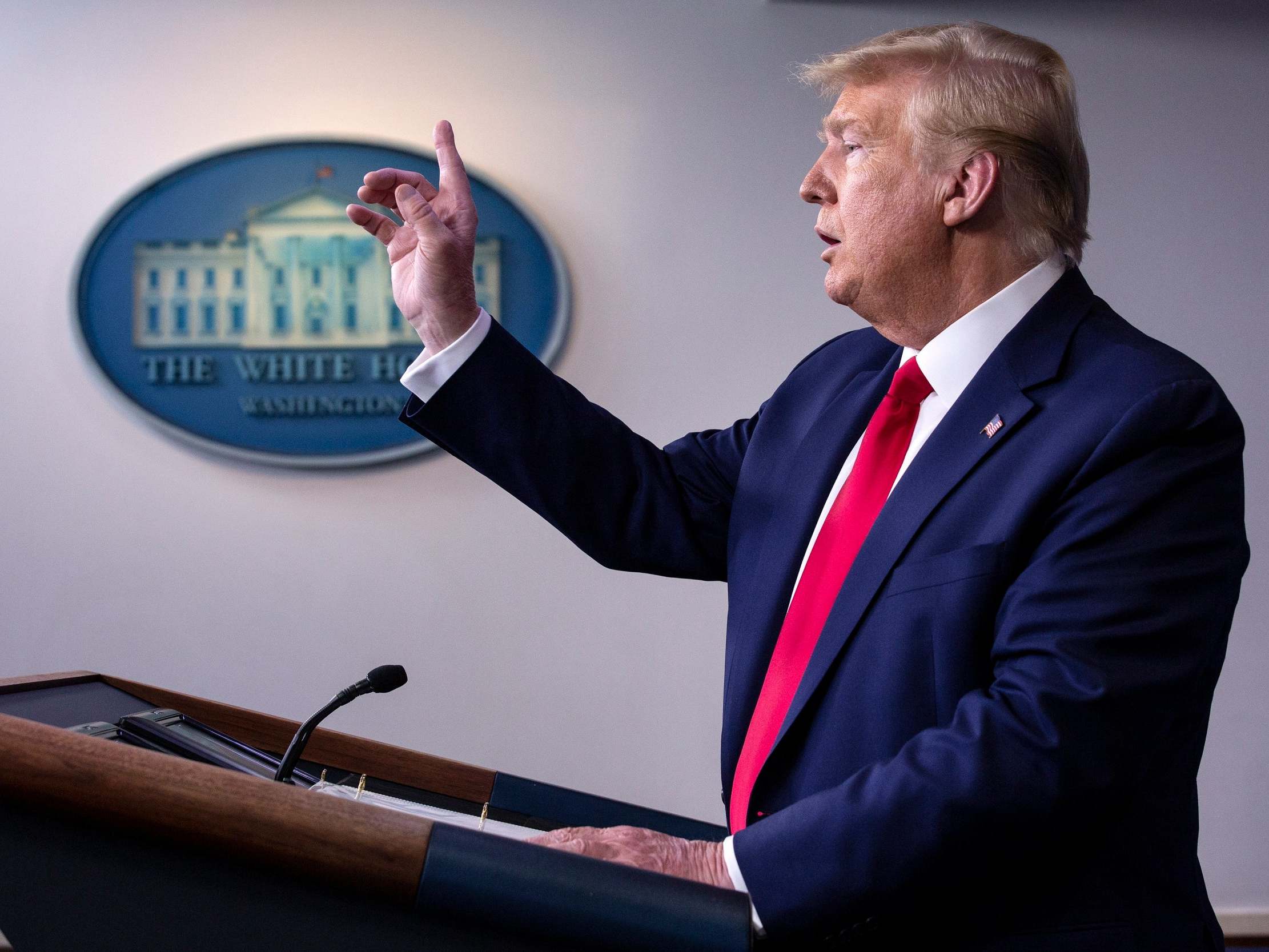Hydroxychloroquine: Is Trump’s controversial drug really a game-changer in fight against coronavirus?
Studies have not concluded the anti-malarial drug can beat coronavirus, but Donald Trump continues to promote it

When Donald Trump doubled down on the benefits of hydroxychloroquine at the White House this weekend, the US president continued down the well-trodden path of wishing for a wonder cure to the coronavirus pandemic.
“It’ll be wonderful, it’ll be so beautiful. It’ll be a gift from heaven if it works,” said Mr Trump on Saturday.
His critics point out that the sentiment is confused, having headed an administration that has been seemingly unprepared for the demand in personal protection equipment (PPE), slow to test, and arguably inconsistent in leadership.
With US cases of the virus nearing 370,000, and 11,000 deaths – at what could soon be the pandemic’s summit – anyone would be forgiven for wanting a “way out”, as Mr Trump described hydroxychloroquine at the weekend.
His own medical experts have, however, warned against widespread use of the anti-malarial drug to treat the coronavirus. “The evidence that you’re talking about … is anecdotal evidence.”, said Dr Anthony Fauci, the nation’s top diseases expert, in March.
To date, there is no conclusive evidence of the drug’s effectiveness or safety when used against the disease. Trials conducted by the US Food and Drug Administration (FDA) will not conclude for at least one month.
So how did president Trump arrive at the point on Sunday when he asked America to consider taking an unproven drug? What do Americans actually “have to lose?”
Two weeks ago, French doctors in Marseille decided to experiment with a combination of the antibiotic known as azithromycin, or Z-pack, and hydroxychloroquine – the drug used for decades as a treatment against malaria.
Six patients who had confirmed cases of the Covid-19 disease were declared to be negative within a week of the non-randomised Marseille programme.
What the study published in a microbiology journal did not make clear was that among the 42 patients initially selected for the experiment, three individuals who received doses of hydroxychloroquine were too ill to be tested for the virus at the end of the trial.
Of these cases, one was discharged from the ICU, one stopped taking the treatment, and one person died – so could not be tested.
In ordinary circumstances, the small size of the French experiment and its selective reporting would not attract much attention.
Mehmet Oz, a celebrity doctor, made sure that Fox News – and the White House – would know all about it.
Appearing on The Sean Hannity Show, Mr Oz mentioned the French doctor, Didier Raoult, who had conducted “some interesting work at a pilot study showing that he could get rid of the virus in six days in 100 per cent of the patients he treated.”
Dr Anthony Fauci, the National Institute of Allergy and Infectious Diseases (NIAID) director, commented that the evidence was “anecdotal”.
Another study conducted in Wuhan, China, did use a randomised control trial on patients, and reported that those with mild cases of the Covid-19 virus recovered before those without the treatment. The study has not yet been peer-reviewed.
Despite Dr Fauci’s caution, president Trump used Twitter to say that the combination of hydroxychloroquine and azithromycin would “have a real chance to be one of the biggest game changers in the history of medicine.”
Mr Trump’s championing of the unproven coronavirus treatment has continued, whilst debate about the drug has become a partisan point of contention.
Yet there is an alternative explanation for the president's hydroxychloroquine love-in. Several Trump family trusts are reported to have investments in the French pharma company, Sanofi, which manufactures it under the brand name Plaquenil.
Although it is difficult to conclude that the man in the White House is hyping the drug for personal profit.
Impact coronavirus is having on Louisiana and New Orleans
Show all 25As calls to find a cure for coronavirus increased at the end of March, hydroxychloroquine was approved by the FDA for use with critically ill coronavirus patients whilst clinical testing to prove the drug’s effectiveness against coronavirus is ongoing.
State health department officials at the epicentre of the US outbreak in New York confirmed this week that 4,000 patients had been administered with a dose of hydroxychloroquine.
Still, no drug comes without potential dangers. Diana Zuckerman, a drug safety expert at the National Center for Health Research, has said that “there is no evidence that these drugs will help people survive, and there is evidence that they can cause substantial harm, including blindness and heart failure,”
Until hydroxychloroquine is proven to be either safe or effective, medical experts including Dr Fauci are unlikely to support widespread use whilst president Trump encourages everyone to take it.
“So what do I know?” asked Mr Trump on Sunday, “I’m not a doctor.”
Subscribe to Independent Premium to bookmark this article
Want to bookmark your favourite articles and stories to read or reference later? Start your Independent Premium subscription today.

Join our commenting forum
Join thought-provoking conversations, follow other Independent readers and see their replies